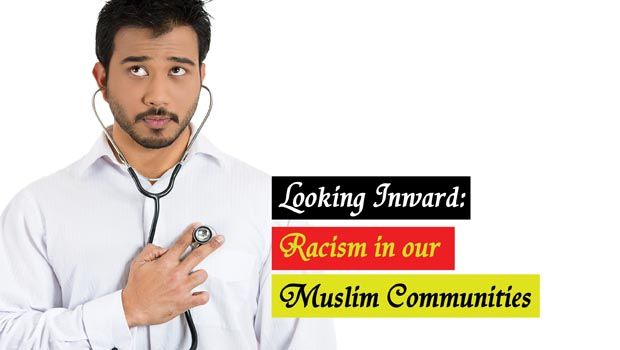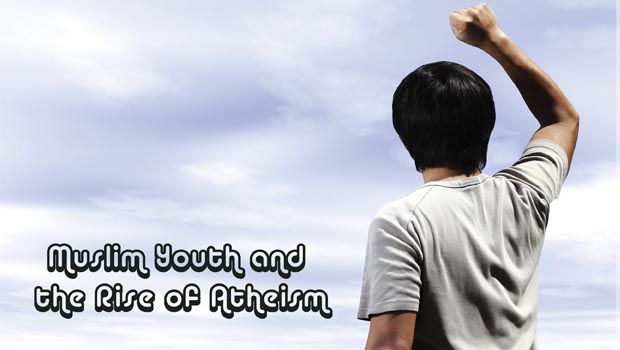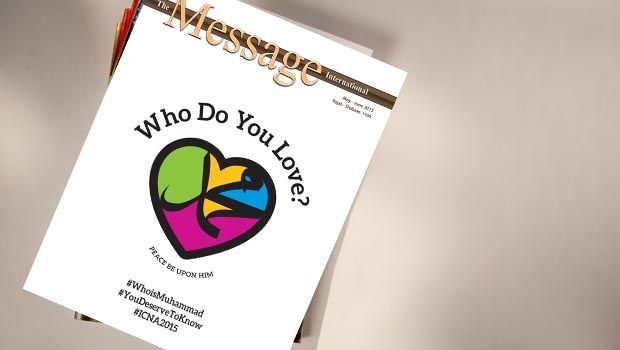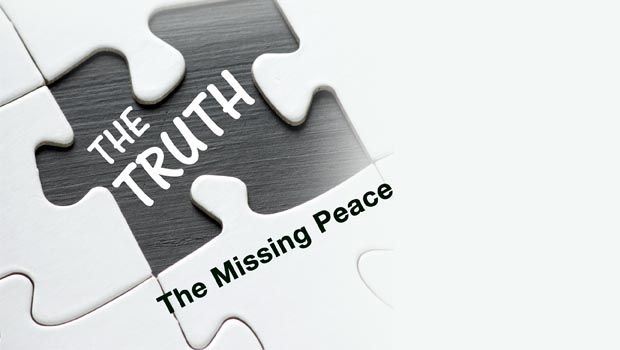Racism is a polarizing topic and one that many in the Muslim community would rather avoid, lest finger pointing begin—and where finger pointing is concerned, a wise person once said: “When you point one finger at another, look at your hand, and you will see that three fingers point back at you.” The goal here is not to encourage finger pointing, but rather to open a sincere discussion that each of us can first have within our own hearts and subsequently with our Creator, seeking His guidance regarding the appropriate rationale and conduct in race relations.
Where race is concerned, all is not as it may seem, and in fact we all have more commonalities than differences.
Allah (SWT) has given mankind the Quran and Sunnah as rules to live by. He has taught us right and wrong and then allowed freedom of choice — to choose right and just actions or the contrary. Within that realm of choice also lies the freedom to make mistakes. Whatever choices we make, good or bad, with sound or ill judgment, there are consequences that result, sometimes in this life and certainly on the Day of Judgment. Racism, within this schema, is a choice. One can engage in it overtly or covertly, consciously or subconsciously. Some Muslims say that it doesn’t exist in our communities, but this is simply an outright lie or evidence of them living in denial of a clear and apparent reality in our Muslim communities.
Whenever I’ve spoken to non-Muslims about Islam and the topic of racism has come up, I’ve always ardently explained to them that Islam provides the only religious teaching which directly addresses and answers the question of racism. Allah (SWT) has said in the Qur’an: “O mankind! We created you male and female, and made you nations and tribes so that you may know one another [not despise one another]. Verily, the most honored of you, in the sight of Allah, is the most righteous of you. Allah is Knower, Aware” (Quran 49:13).
Islam has answered the question of racism and set the standard for racial equality, and yet ironically most, if not all, Muslims have fallen at one time or another into the trappings and ignorance of racism. In the previous Quranic ayah, Allah (SWT) explained that He created us differently for the sake of variety and the opportunity to increase our knowledge and awareness of others and, thereby, our own selves —not to despise each other or make antagonistic divisions among ourselves. According to the Merriam-Webster dictionary, the word despise means to look down on with contempt or aversion, and to regard as negligible, worthless, or distasteful. Despising others and viewing them as being inherently inferior is part of what lies at the root of racism.
Roots of Racism
Before we can look ahead for solutions to this problem of racism in our communities, it is helpful to look back and examine some of its roots. In fact, throughout history and around the world, racism has existed in varying degrees, and has been found in oppressive and exploitative ideologies and practices like white supremacy, colonialism, military occupation, and apartheid–all systems intended to oppress, exploit, and discriminate against people of color for the purpose of, among other things, maintaining economic and/or political advantage.
There are other factors to consider as well. According to an article in Science Magazine written by Elizabeth Culotta, “Racial prejudice apparently stems from deep evolutionary roots and a universal tendency to form coalitions and favor our own side. In experiments, people easily form coalitions based on meaningless traits or preferences—and then favor others in their ‘group.’ Researchers have explored these innate biases and begun to ask why such biases exist. Several avenues of research are probing the origins of what many psychologists call in-group love and out-group hate.” Racism has quite the checkered past, and in American society today racist beliefs, attitudes, and behaviors still exist, though they are more subtle. However, racism’s overtly oppressive grip was an open reality not so long ago during the slave trade days. As if slavery itself wasn’t humiliating enough, there was also the three-fifths clause formerly found in the American Constitution in Article 1, Section 2, Paragraph 3 which stipulated that in determining a state’s population, to the number of free persons in that state would be added “three fifths of all other Persons [slaves].” In effect, a slave was counted not as a whole person, but rather three-fifths a person.
Racism has clearly been a world-wide phenomena throughout history —and unfortunately the Muslim community has not been immune to it’s venomous grip. Although societal and cultural influences and pressures can be considered contributing factors to the existence of racism in the Muslim community, ultimately every individual is accountable to Allah (SWT) for his or her own actions and behaviors toward fellow Muslims and fellow man. Perhaps at the heart of the racism discussion are a number of questions that Muslims should ask themselves: “Do I believe that an individual born with white or lighter skin is superior to an individual born with darker or black skin?” “If I think this, am I further willing to entertain the notion that Allah (SWT) favors one skin color or ethnic group over another?” “In everyday activities, do I give preferential treatment or greater respect to individuals with white or lighter skin, while discriminating subtly or overtly against individuals with darker or black skin?”
However one answers these questions, it is imperative to know, without equivocation, that Islam promotes equality of worth and dignity and spiritual potential, a veritable foundation for unity rather than division, and rejects any notion that Allah (SWT) favors a skin color, a race, or an ethnicity, one over another. Prophet Muhammad (saws) has said: “Verily, Allah does not look to your faces, to your lineage, or to your wealth, but He looks to your hearts and your deeds” (Muslim).
Examples of Racism Among Muslims
Racism, as already stated, is not a problem confined to the non-Muslim world. The harsh reality is that members of the Muslim community have engaged in various racist practices. Within our Muslim communities, there are reports of a dynamic that plays off a light-skin / dark- skin hierarchy. This dynamic is seen in the African American, Arab, Latino, and South Asian communities, amongst others, wherein the lighter the complexion the more respected and privileged the person is. In addition, there is also ignorant racial stereotyping in our communities. This particular phenomena was recently addressed by Dawud Walid, Executive Director of the Michigan chapter of the Council on American-Islamic Relations (CAIR-MI) where he talks about how there is still name calling and put-downs in our Muslim communities directed by some at African American Muslims:
“A hurtful symptom of the disease of racism among us is seen in the derogatory terms that are used by many Muslims to describe people of various racial groups. From my observations it appears that Black Americans are the subjects of the majority of this name calling. It is not uncommon for Arabs from the Levant to refer to Blacks as abeed (slaves). In the South Asian community, Blacks or people with darker skin are sometimes referred to negatively as kallu (Black person). In the Somali community, it is also not uncommon to hear other Blacks being called jareer (nappy head) and adoon (slave). And even among some Nigerians and Ghanaians, there is widespread usage of the word akata (wild animal) to describe descendants of their former enslaved tribesmen, who are Americans.” This practice is insulting and humiliating and is meant to demean others, and to declare the superiority of the one ethnic group over another. This practice is a violation of the rights of our fellow Muslims, and Allah (SWT) cautions us against this in the Quran. “And do not insult one another and do not call each other by [offensive] nicknames (49:11).”
In addition, there have been complaints of racial injustice rearing its ugly head within the walls of Masjids and Islamic schools. Incidents have been reported such as people of certain immigrant ethnic groups being paid far better compared to African Muslims or African American Muslims for the same positions in Islamic schools and Islamic organizations. Other examples include the unwillingness of some immigrant Muslims to hire African-American Muslims or African Muslims in a leadership role like principal of a school, or to vote them in as president of an Islamic center. And there have been some cases where African or African-American Muslims are hired for such a position or voted into office but then soon after ousted or fired as a result of some provoked or contrived controversy. There are also complaints that some Arab Muslims promote the idea that they alone should be leaders because of their knowledge of the Arabic language and the Quran, even though they may be lacking in leadership skills, organizational competence, or other relevant traits.
Another problem is the ethnic isolationism that has become commonplace in our Muslim communities. Masjids are becoming exclusive to one ethnic group, creating congregations dividing along racial lines – the Pakistani masjid, the Arab masjid, the African American masjid, the Turkish masjid, the Somali masjid, and so on. These masjids are typically run solely or predominantly by a particular ethnic group and the khutbas are often delivered in the corresponding language of that group. This problem of isolationism becomes even more severe when members of other cultures or ethnic groups feel unwelcome, and each ethnic community becomes a world unto its own, with the broader goal of Muslim unity completely broken down.
Likewise, ethnic isolationism also takes place inside the masjid itself. Within masjids attended by various ethnic groups, a hurtful but commonplace activity is the unfortunate tendency of some Muslims to offer the Islamic greeting “Salamu Alaikum” exclusively to one’s own ethnic group, treating others, consciously or not, as invisible or insignificant. Although some Muslims may use shyness as an excuse for this tendency, they should consider that fellow Muslims of other ethnic groups could feel hurt by this and believe they are being ignored solely because of their race or culture. To avoid hurting or excluding fellow Muslims in this regard, we should heed the words of our Prophet Muhammad (saws) who said: “Should I direct you to a thing which, if you do, will foster love amongst you? Offer the salutation to one another by saying ‘as-salamu alaikum’“(Muslim).
Interracial and Intercultural Marriages
Some Muslims marry exclusively within their own racial, ethnic, or cultural groups. The question of interracial and intercultural marriage within the Muslim community is a delicate topic. On the one hand, it is understandable that some people have an affinity for their own culture and prefer to find mates who share similarities of language, traditions, and perhaps even family ties. After all, these commonalities can provide a good marriage foundation. However, problems arise when a potential spouse is rejected solely on the basis of race or culture, even when he or she appears to be a compatible match in terms of personality, life vision, and religious dedication. This problem usually surfaces when children of immigrant parents express interest in marrying someone outside of their family’s race or culture. Yet, there are several hadeeth which speak about ideal characteristics to look for in choosing a marriage partner, and skin color or race is never one of the criteria.
Allah (SWT) says in the Quran, “And among His Signs is this – that He created for you mates from among yourselves, that you may dwell in tranquility with them, and He has put love and mercy between your (hearts): verily in that are Signs for those who reflect. And among His signs are the creation of the heavens and the earth, and the variations of your languages and colors; surely in these are Signs for people of knowledge” (Quran 30:21-22). Islam clearly permits interracial and intercultural marriage, and it is important to point out that Allah (SWT) follows the verse about marriage with one that describes the diversity of human languages and skin colors as one of His Signs.
In Islamic history there have been examples of interracial marriage. After the death of his first wife Khadijah bint Khuwaylid, Prophet Muhammad (saws) married Maria Al-Kibtiyyah, a Coptic who was born in Egypt. The Prophet (saws) also encouraged an interracial marriage for one of his Sahaba, Bilal Ibn Rabah, who married an Arab woman. In fact, Bilal’s father was Arab and his mother was Ethiopian. Marriage is a family issue, and some individuals and their families are more comfortable with a marriage within their own ethnic/cultural group. This is not an issue if that choice is not sullied by racism.
Muslim Marriage Opportunities
With the rise of immigrant families settling in North America, there are unique opportunities for their children when they reach the age of marriage. These children have cultural influences from their family’s heritage as well as the experience of growing up within the American culture. When these individuals come of age, they have the opportunity to consider partners who, like themselves, were born and/or raised in North America while maintaining their ethnic heritage, to one degree or another. That ethnic heritage might be the same or might be different. For example, a Pakistani-American young man and young woman might find themselves a wonderfully compatible match; but so might two young adults raised in America but with different ethnic backgrounds or races. These respective couples all have the common experience of being raised Muslim in America. These are matches that are potentially successful, and are certainly acceptable Islamically. The common denominator in all these matches is that each individual is Muslim and that is the most important identifier.
An Anthropological Look at Race
Where race is concerned, all is not as it may seem, and in fact we all have more commonalities than differences. As such, racism and the “race war” can seem somewhat ironic. Those who studied Anthropology 101 in college may recall that research shows that there are three primary races—and every human being fits into one or a mixture of these three races: Caucasoid, Mongoloid, and Negroid. The three primary races share 99.99 percent of the same genetic material. Thus, all human beings have almost total genetic commonality, with negligible genetic differences. The distinctions that we make that divide us arise out of a desire for feeling superior to others. We should keep in mind that this was the error of Iblis (Shaitan) when he stated that he was better than Adam. Allah (SWT) reproaches him, telling him he is arrogant and because of that he shall be despised and humiliated (7:12-13). For sure, Islam sets the record straight, teaching us that we all descend from the same first humans – Adam and Eve. Then, according to Islamic teachings, unity rather than division is a means of moral and spiritual upliftment. And still further, we are taught that only taqwa, a God-conscious righteousness, elevates a person in the sight of God, for taqwa represents superior faith and character and that is what counts.
Islam rejects any notion that certain races are superior to other races. The Prophet Muhammad (saws) said in his last sermon. “All mankind is from Adam and Eve, an Arab has no superiority over a non-Arab nor a non-Arab any superiority over an Arab; also a white has no superiority over a black, nor a black any superiority over a white – except by piety and good action. Learn that every Muslim is a brother to every Muslim and that the Muslims constitute one brotherhood. Nothing shall be legitimate to a Muslim which belongs to a fellow Muslim unless it was given freely and willingly. Do not therefore, do injustice to yourselves” (Bukhari).
Celebration of Diversity and Multiculturalism
We all come from Adam and Eve, and Allah (SWT) says in Surah Hujurat (49:13), as cited above, that we are created as nations and tribes so that we can know one another. Life is so much more interesting in its diversity, with many languages, cultural traditions, ethnic foods, manners of dress, and so on. Yielded out of Allah’s infinite wisdom, there are over 6,000 spoken languages in the world today. And we are blessed to enjoy such culinary variety as biryani, mansaf, falafel, spaghetti, tacos, sushi, pizza, or even halal hot dogs. After all—isn’t “variety the spice of life”? We need to appreciate our differences rather than using them to build walls of segregation.
Our Communities Must Be Exemplars of Non-Discrimination
Rather than dehumanizing, despising, and discriminating against one another, Muslims in our communities should promote and practice in everyday affairs unity and a respect for diversity. Masjids should be inclusive, allowing people of various ethnic groups to have a voice and hold positions on the boards. If we are to be the “ummah, justly balanced,” that Allah (SWT) speaks of in the Quran (2:143), then we must practice justice, and promote equality and mutual respect. Prophet Muhammad (saws) said: “Thank God Who has removed from you the blemish of ignorance and its arrogance. O people, men are divided into classes – the pious and righteous, who are honorable in the sight of Allah, and the sinful and vicious, who are contemptible in the sight of Allah; whereas all men are the children of Adam and Adam was created by Allah from clay” (Muslim).





